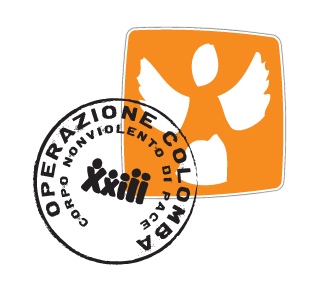Az Zawiya village - Agricultural checkpoints
Abu Sameer leaves his house and proceeds through the streets of the city, wrapped in darkness. While he is walking, other villagers join him. It is 5 in the morning; the city is still silent. Only the workers are following this routine made by greetings, yawn, waiting, swearing, injustices and solidarity. A walk between the city and the woods to the gate, a small iron door who give them the possibility to get to the “other side”.
There are already people over there, waiting. Workers, generally. But there are also many farmers, which are prevented to reach their land freely due to the separation barrier. Abu Sameer is one of them.
The gate opens at 6 in the morning. But the opening hours depends on the soldiers, who are late sometimes few minutes, sometimes hours. In the meantime, the workers are waiting, even under the flowing rain in winter.
The military jeep arrives. Two soldiers go down, and place themselves one on the right and one on the left of the gate. They open the gate and start to ask the entry permits. Eyes on the permit, eyes on the face of the Palestinian. He can pass. Worker, after worker, less than one hundred. It is a procession, which takes 15 minutes. That's the opening time of the gate, rarely the soldiers keep it open longer.
Abu Sameer gets in line as the others. The soldiers look at him and shake their heads negatively. They declare that the donkey cannot pass. Abu Sameer tries to explain them that he is not able to reach his land walking because it’s far away. Protesting is pointless, the soldiers are intransigent: he is not allowed to cross with the donkey.
Other people are banned to pass the gate with their bicycles. Despite the necessity due to the distances that they have to walk after the gate, the ban cannot be discussed. It seems that today the soldiers consider bicycles and a donkey security risks.
Abu Sameer steps back disconsolate and moves back home. Many other people leave the bicycles on the ground, and cross the gate once checked by the soldiers.
Waiting, controls, people who can pass, people who have to return back. There is no justification most of the time, it depends only by the mood of the soldiers who hold the keys of the gate. Day, after day.
About 35% of the agricultural land of Az-Zawiya is located beyond the Wall and within the settlement of Elkana. It is the so-called Seam Zone, the land area closed between the Green Line and the Separation Barrier. To enter in their land, the Palestinians farmer must obtain a special permit from the Israeli Civil Administration authority, providing an ownership document and showing their bond with the land.
The permits are generally issued just for particular seasonal periods, for example during the olive harvest. This authorization system hampers the maintenance of agricultural land, preventing carry out general year-round agricultural activities.
The access to the farmlands is allowed through agricultural gates, crossing points designed by Israel along the Separation Barrier, as the Magen Dan gate for Az-Zawiya community.
These agricultural checkpoints are controlled by the Israeli army and entails a narrow network of permits and restrictions. The gate of Magen Dan is opened only for 15 minutes, three times per day. As monitored by Operation Dove volunteers for a certain period, opening hours as well as the permission to transport over the barrier bicycles or animals is left to the discretion of the soldiers.


 OPERAZIONE COLOMBA
OPERAZIONE COLOMBA
